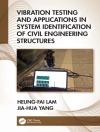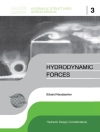This book contains the proceeding of the 26th International Conference on Production Research (ICPR). ICPR is a biennial conference that has been hosted for more than a half century. It is regarded worldwide as one of the leading conferences of production research, industrial engineering, and related subjects.
The acute impact of the pandemic on human lives is spurring further research and advances: because modern life relies on production and supply networks. The future of production calls for transformative research exploiting the possibilities of artificial intelligence in particular to respond to the challenge of sustainability.
This book is of interest to researchers, students, and professionals in industry.
表中的内容
Part 1: Impact of the Pandemic on Industry and Production.- 1. Development of Training System for Appearance Inspection Using Motion Capture and Large Size Display.- 2. Worker Organization System for Collaborative Crowdsourcing.- 3. Matrix Approach and Scheduling for Cooperation Requirement Planning in Industrial Robots.- 4. Evaluation of Material-based GHG Emissions under COVID-19 Disruption on Redesigning Global Supply Chain Network across TPP Countries.- 5. Modeling of Inventory Routing Problem with Intermediate Locations in Emergency Logistics Considering Uncertainty of Road Conditions.- 6. Problem of Modeling Global and Closed-Loop Supply Chain Network Design.- 7. Vehicle Relocation Scheduling Considering Charging Time for One-Way Electric Vehicle Car-Sharing Systems.- 8. Prediction of COVID-19 Hospital Beds by On-Demand Cumulative-Control Analysis.- Part 2: Digital and Cyber Manufacturing and Services.- 9. A Study on Skill Transfer using Augmented Reality.- 10. Humanized Robot of New Method & Time System and its Management: A Digital Transformation Case of Convenience Store Type.- 11. Profiles and Testing in OPC UA – Current State and Future Potentials in Industry 4.0.- 12. Manufacturing workflows in microservice architectures supporting digital transactions for business process automation.- 13. Scheduling 3D Printing Machines to Minimize Makespan.












